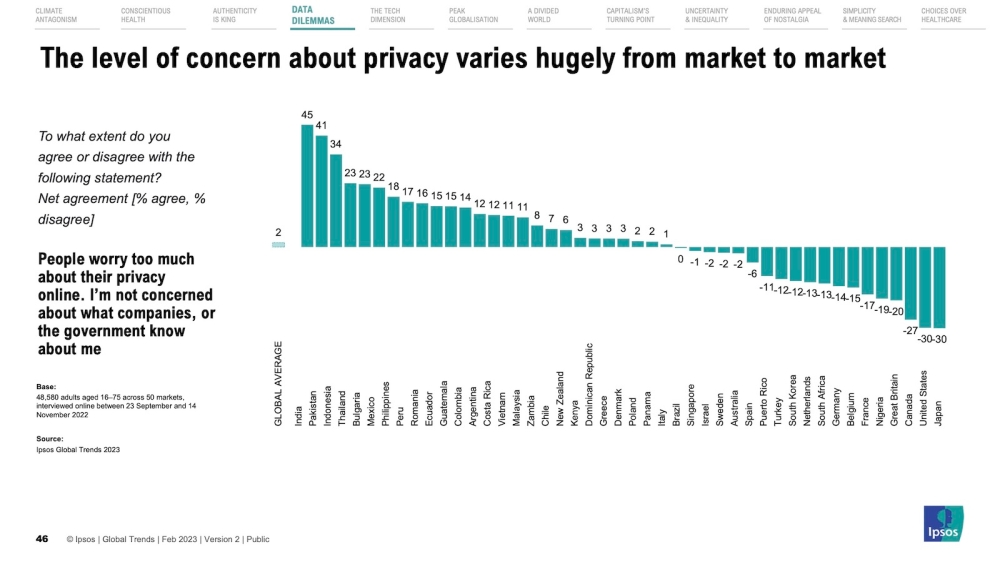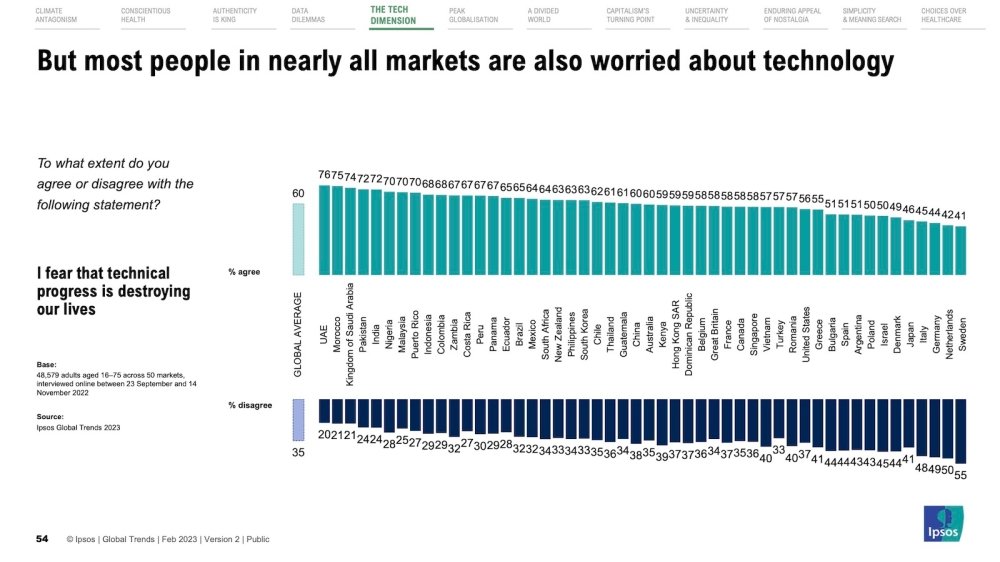KUALA LUMPUR, March 1 — Over seven in 10 Malaysians surveyed in a global study said they felt that their loss of privacy is "inevitable", joining the prevalent trend worldwide as technology continues to grow.
However, Malaysia was also one of only two countries — along with South Korea — where the proportion of respondents who are concerned over their privacy and how their government use their data outnumbered those who were resigned to it: at 79 per cent compared to 73 per cent.
"While concerns about data privacy and Big Tech remain strong, data apathy continues to grow, with citizens recognising that some loss of privacy is inevitable.
"This coincides with a rising proportion who think that technical progress is destroying our lives as the metaverse and generative AI burst onto the global scene," market research company Ipsos said in the 2023 edition of its Global Trends survey.

It identified five impactful factors influencing the global trend this year: pervasive technology, the immersive frontier, artificial intelligence (AI) advances and quantum computing, increased automation, and the toll of technology.
"An implicit belief in the power of technology to do good and improve lives is part of the privacy trade-off,” it commented.
In connection with that, 77 per cent of Malaysian respondents indicated a belief that all medical conditions and diseases will become curable eventually.
However, 70 per cent also feared that technological progress would come at the cost of destroying their lives.
Yet many Malaysian respondents expressed that they could not imagine their lives without the internet (77 per cent).
The recognition of the role technology plays in daily life has remained high with a high proportion of respondents consistently indicating that they cannot imagine life without the internet, Ipsos said, adding that this number has increased slightly in some countries.
"However, over the same period there has been a significant increase in people who feel that we have lost something along the way, that technology, while hugely powerful, is undermining our way of life to some extent,” it added.
In reverse to the belief that older people were more likely to feel disquiet about technology, it found that a quarter of all respondents aged between 25 and 34 strongly agreed that technological progress is destroying their lives.
On the other hand, only 15 per cent of those aged between 55 and 74 felt that way.

Ipsos said that social media in particular was a growing concern as many of its users are choosing a "digital detox”.
"The role of social media in spreading negative information, causing alienation, depression, anxiety and lowering users’ self-esteem has been the subject of considerable research and may be one of the drivers behind this pattern,” it commented.
A total of 48,541 people aged 16 to 75 from 50 countries were interviewed between September to November 2022.



















